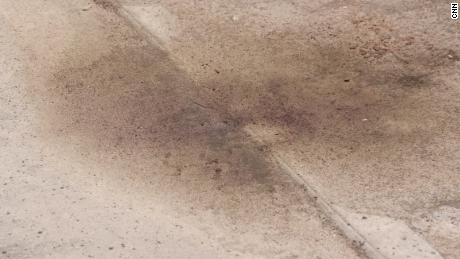A new realization dawns for Washington, Europe, Kyiv and Moscow

Every day brought a sense of grave, historic events and decisions that will not just decide who wins the biggest land war between two countries in Europe since World War II, but will shape the course of the rest of the 21st century.”Throughout our history, we’ve learned that when dictators do not pay the price for their aggression, they cause more chaos and engage in more aggression,” Biden said. “They keep moving. And the costs, the threats to America and the world, keep rising. We can’t let this happen.”Hawkish British Foreign Secretary Liz Truss was more blunt: “Geopolitics is back.”Over just a few days, a new realization dawned in Washington, Europe, Kyiv and Moscow. The war is now transitioning into The carnage in Ukraine, meanwhile, goes on. Vicious attacks and sieges of civilian areas prefaced Russia’s new assault on the south and east — battles that could decide whether Ukraine survives as a nation. Yet this week also brought the first signs that Russians accused of atrocities could face accountability.But the alarming reality that no credible diplomatic track exists to end the war was laid bare when Russian missiles slammed into Kyiv on Thursday while While casual talk about the use of the world’s most dangerous weapons might be designed to scare Western populations, it nevertheless underscored that the possibility of a disastrous clash between the world’s two most powerful nuclear nations — the United States and Russia — will exist as long as the war drags on.Some US experts dismiss the Russia tough talk as a sign that Putin is frustrated by failing to fulfill his strategic goals in Ukraine. But it also serves to remind Western leaders that their massive injection of arms into Ukraine could come up against Putin’s hard-to-define red lines and cause a dangerous escalation. And fears linger that if he is pushed into a corner, Putin could deploy one of Russia’s smaller-yield tactical nuclear weapons on the battlefield in Ukraine.As the US laid out its toughened approach to the war — weakening Russian military power — Russian Foreign Minister Sergey Lavrov once again resorted to the familiar Russian tactic of talking about nuclear war, warning, “The danger is real and we must not underestimate it.”For the US, the Chairman of the Joint Chiefs of Staff Gen. Mark Milley told CNN that Russia should not be throwing such inflammatory rhetoric. He said it was “completely irresponsible” for any senior leader of a nuclear power to start “rattling a nuclear saber.”But Putin wasn’t listening. After several times darkly warning of the potency of Russia’s nuclear arsenal at the start of the war, the Russian President was at it again. He said that there would be a “lightning fast” response from Russia if other countries interfered in Ukraine. “We have all the tools for this — ones that no one can brag about. And we won’t brag. We will use them if needed. And I want everyone to know this,” he told lawmakers in St. Petersburg.This all caused Biden to warn about the danger of such rhetoric. “No one should be making idle comments about the use of nuclear weapons or the possibility of the need to use them,” Biden said at the White House Thursday.Bitter exchanges like these between Russia and the United States have driven relations between the two countries “into the depths,” US Ambassador to Russia John Sullivan told CNN on Thursday.The carnage gets worseThe big diplomatic hope of the week was the trip by the UN’s Guterres to both Moscow and Kyiv. But neither side seems to see a rationale for talking right now. This is partly due to Ukraine’s understandable mistrust of Putin after his unprovoked invasion. But there is also a sense in Ukraine and in western capitals that Putin’s indifference to the bloody cost of his war is a clear sign that he is committed to grinding on until he has reasonable grounds to declare some kind of victory that is not yet in sight.Guterres told CNN that Putin had agreed in principle to allow the UN and the International Red Cross to help evacuate citizens from the Azovstal steel plant in Mariupol, the last bastion of Ukrainian resistance in the city.But his trip to Kyiv on Thursday, which ended as Russian missiles pounded the city, was an apt symbol of Russia’s current attitude toward diplomacy — and its contempt for the rule of international law, which the United Nations was set up to preserve.The dispiriting reality at the end of a defining week for the West and Russia is that peace in Ukraine may be further away than it has been since the invasion. And while the West can send a torrent of arms, ammunition and aid into the country, it cannot end a war that will send painful and dangerous political, military and economic shock waves around the world for months to come. Only Putin can do that.As Guterres put it in his interview with CNN’s Anderson Cooper, “The war will not end with meetings. The war will end when the Russian Federation decides to end it and when there is a serious political agreement. We can have all meetings but that is not what will end the war.”







